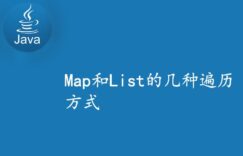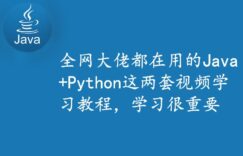如果您有要映射到POJO而不需要编写完整的POJO类的JSON,则可以使用jsonschema2pojo库。这是一个出色的库,可以使用输入的JSON创建 Java 类。

先决条件
程式语言 :Java
Pom依赖关系 :
<dependency>
<groupId>org. json schema2pojo</groupId>
<artifactId>jsonschema2pojo-core</artifactId>
<version>0.4.35</version>
</dependency>
程序
主要方法:
public static void main(String[] args) {
String packageName=”com.cooltrickshome”;
File inputJson= new File(“.”+File.separator+”input.json”);
File outputPojoDirectory=new File(“.”+File.separator+”convertedPojo”);
outputPojoDirectory.mkdirs();
try {
new JsonToPojo().convert2JSON(inputJson.toURI().toURL(), outputPojoDirectory, packageName, inputJson.getName().replace(“.json”, “”));
} catch (IOException e) {
// TODO Auto-generated catch block
System.out.println(“Encountered issue while converting to pojo: “+e. getMessage ());
e.printStackTrace();
}
}
怎么运行的
1. packageName定义输出POJO类的包名称。
2. inputJson定义了需要转换为POJO的JSON。
3. outputPojoDirectory是将在其中创建POJO文件的本地路径。
4. 我们调用创建的convert2JSON方法,传递输入JSON,输出路径,packageName和输出POJO类名。
convert2JSON方法:
public void convert2JSON(URL inputJson, File outputPojoDirectory, String packageName, String className) throws IOException{
JCodeModel codeModel = new JCodeModel();
URL source = inputJson;
GenerationConfig config = new DefaultGenerationConfig() {
@ Override
public boolean isGenerateBuilders() { // set config option by overriding method
return true;
}
public SourceType getSourceType(){
return SourceType.JSON;
}
};
SchemaMapper mapper = new SchemaMapper(new RuleFactory(config, new Jackson2Annotator(config), new SchemaStore()), new SchemaGenerator());
mapper.generate(codeModel, className, packageName, source);
codeModel.build(outputPojoDirectory);
}
怎么运行的
1.
我们创建一个JCodeModel对象,该对象将用于生成Java类。
2.
3.
我们定义了jsonschema2pojo的配置,该配置使程序知道输入源文件是JSON(getSourceType方法)。
4.
5.
现在,我们将配置以及在步骤1中创建的codeModel一起传递给schemamapper,后者将通过提供的JSON创建JavaType。
6.
7.
最后,我们调用build方法来创建输出类。
8.
完整程序
package com.cooltrickshome;
import java.io.File;
import java.io.IOException;
import java.net.MalformedURLException;
import java.net.URL;
import org.jsonschema2pojo.DefaultGenerationConfig;
import org.jsonschema2pojo.GenerationConfig;
import org.jsonschema2pojo.Jackson2Annotator;
import org.jsonschema2pojo.SchemaGenerator;
import org.jsonschema2pojo.SchemaMapper;
import org.jsonschema2pojo.SchemaStore;
import org.jsonschema2pojo.SourceType;
import org.jsonschema2pojo.rules.RuleFactory;
import com.sun.codemodel.JCodeModel;
public class JsonToPojo {
/**
* @param args
*/
public static void main(String[] args) {
String packageName=”com.cooltrickshome”;
File inputJson= new File(“.”+File.separator+”input.json”);
File outputPojoDirectory=new File(“.”+File.separator+”convertedPojo”);
outputPojoDirectory.mkdirs();
try {
new JsonToPojo().convert2JSON(inputJson.toURI().toURL(), outputPojoDirectory, packageName, inputJson.getName().replace(“.json”, “”));
} catch (IOException e) {
// TODO Auto-generated catch block
System.out.println(“Encountered issue while converting to pojo: “+e.getMessage());
e.printStackTrace();
}
}
public void convert2JSON(URL inputJson, File outputPojoDirectory, String packageName, String className) throws IOException{
JCodeModel codeModel = new JCodeModel();
URL source = inputJson;
GenerationConfig config = new DefaultGenerationConfig() {
@Override
public boolean isGenerateBuilders() { // set config option by overriding method
return true;
}
public SourceType getSourceType(){
return SourceType.JSON;
}
};
SchemaMapper mapper = new SchemaMapper(new RuleFactory(config, new Jackson2Annotator(config), new SchemaStore()), new SchemaGenerator());
mapper.generate(codeModel, className, packageName, source);
codeModel.build(outputPojoDirectory);
}
}
输入JSON:
{
“name”: “Virat”,
” sport “: “cricket”,
“age”: 25,
“id”: 121,
“lastScores”: [
77,
72,
23,
57,
54,
36,
74,
17
]
}
生成的输出类:
package com.cooltrickshome;
import java.util.ArrayList;
import java.util.HashMap;
import java.util.List;
import java.util.Map;
import com.fasterxml.jackson. annotation .JsonAnyGetter;
import com.fasterxml.jackson.annotation.JsonAnySetter;
import com.fasterxml.jackson.annotation.JsonIgnore;
import com.fasterxml.jackson.annotation.JsonInclude;
import com.fasterxml.jackson.annotation.JsonProperty;
import com.fasterxml.jackson.annotation.JsonPropertyOrder;
import org.apache.commons.lang.builder.EqualsBuilder;
import org.apache.commons.lang.builder.HashCodeBuilder;
import org.apache.commons.lang.builder.ToStringBuilder;
@JsonInclude(JsonInclude.Include.NON_NULL)
@JsonPropertyOrder({
“name”,
“sport”,
“age”,
“id”,
“lastScores”
})
public class Input {
@JsonProperty(“name”)
private String name;
@JsonProperty(“sport”)
private String sport;
@JsonProperty(“age”)
private Integer age;
@JsonProperty(“id”)
private Integer id;
@JsonProperty(“lastScores”)
private List < Integer > lastScores = new ArrayList < Integer > ();
@JsonIgnore
private Map < String, Object > additionalProperties = new HashMap < String, Object > ();
@JsonProperty(“name”)
public String getName() {
return name;
}
@JsonProperty(“name”)
public void setName(String name) {
this.name = name;
}
public Input withName(String name) {
this.name = name;
return this;
}
@JsonProperty(“sport”)
public String getSport() {
return sport;
}
@JsonProperty(“sport”)
public void setSport(String sport) {
this.sport = sport;
}
public Input withSport(String sport) {
this.sport = sport;
return this;
}
@JsonProperty(“age”)
public Integer getAge() {
return age;
}
@JsonProperty(“age”)
public void setAge(Integer age) {
this.age = age;
}
public Input withAge(Integer age) {
this.age = age;
return this;
}
@JsonProperty(“id”)
public Integer getId() {
return id;
}
@JsonProperty(“id”)
public void setId(Integer id) {
this.id = id;
}
public Input withId(Integer id) {
this.id = id;
return this;
}
@JsonProperty(“lastScores”)
public List < Integer > getLastScores() {
return lastScores;
}
@JsonProperty(“lastScores”)
public void setLastScores(List < Integer > lastScores) {
this.lastScores = lastScores;
}
public Input withLastScores(List < Integer > lastScores) {
this.lastScores = lastScores;
return this;
}
@Override
public String toString() {
return ToStringBuilder.reflectionToString(this);
}
@JsonAnyGetter
public Map < String, Object > getAdditionalProperties() {
return this.additionalProperties;
}
@JsonAnySetter
public void setAdditionalProperty(String name, Object value) {
this.additionalProperties.put(name, value);
}
public Input withAdditionalProperty(String name, Object value) {
this.additionalProperties.put(name, value);
return this;
}
@Override
public int hashCode() {
return new HashCodeBuilder().append(name).append(sport).append(age).append(id).append(lastScores).append(additionalProperties).toHashCode();
}
@Override
public boolean equals(Object other) {
if (other == this) {
return true;
}
if ((other instanceof Input) == false) {
return false;
}
Input rhs = ((Input) other);
return new EqualsBuilder().append(name, rhs.name).append(sport, rhs.sport).append(age, rhs.age).append(id, rhs.id).append(lastScores, rhs.lastScores).append(additionalProperties, rhs.additionalProperties).isEquals();
}
}
最后,开发这么多年我也总结了一套学习Java的资料与面试题,如果你在技术上面想提升自己的话,可以关注我,私信发送领取资料或者在评论区留下自己的联系方式,有时间记得帮我点下转发让跟多的人看到哦。




